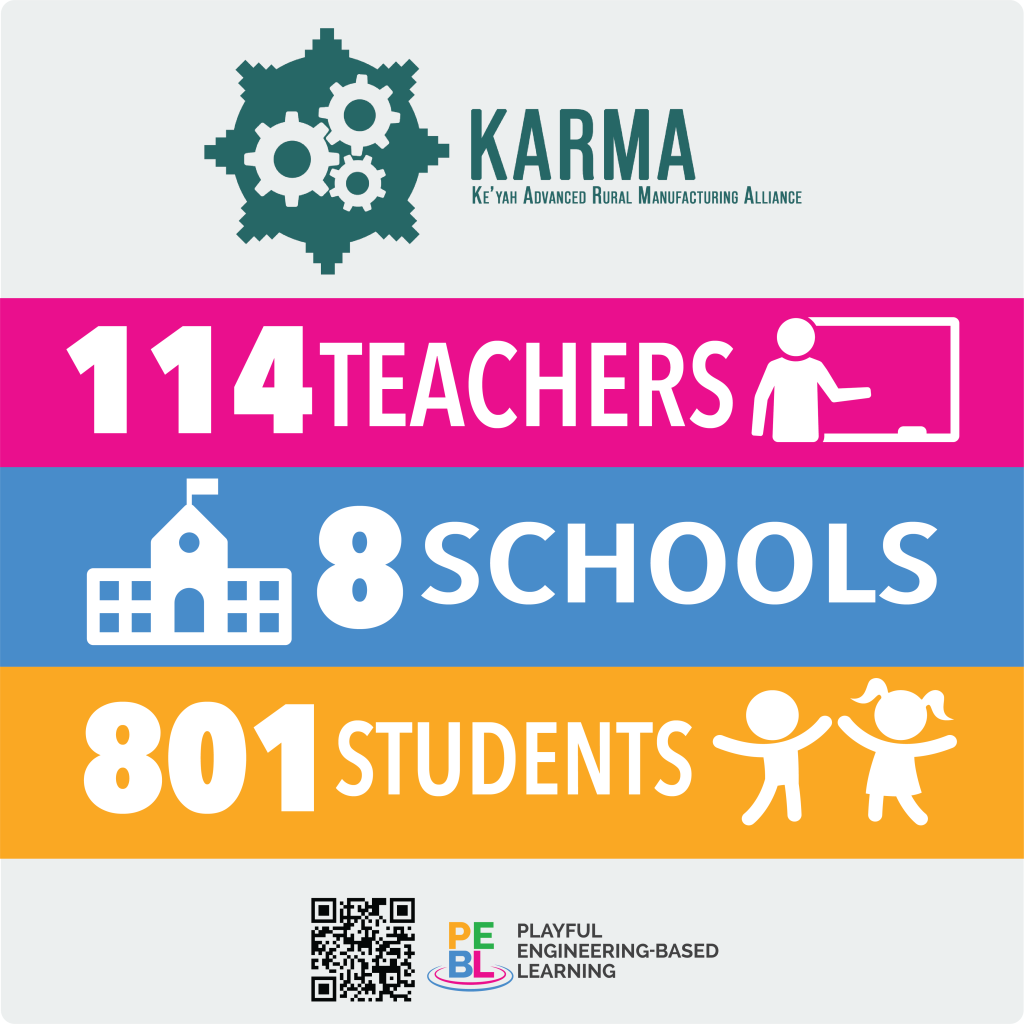
Ke’yah Advanced Rural Manufacturing Alliance (KARMA)
Ke’yah Advanced Rural Manufacturing Alliance. KARMA is a collaborative project between Navajo Technical University, Navajo Tech Innovation Center, and a consortium of universities, incubators, and manufacturers. KARMA is combining technical education and workforce opportunities to support Navajo parents with young children to become interested and involved in hi-tech manufacturing skills and culture. Young children benefit from stable homes with informed parental environment that provide seamless academic transitions from K-12 into college and eventually apply their own learned skills.
KARMA programs will ultimately increase interconnection and self-sustaining opportunities within Navajo and show how students can be influential in their communities in creating this change while implementing advanced manufacturing. This change will entice upcoming students to stay in their communities to explore the potential in the field of advanced manufacturing. The resulting best practices, coupled with innovative educational programs, will empower Navajo students, faculty and communities to move into advanced manufacturing markets that can become a major Navajo economic engine.
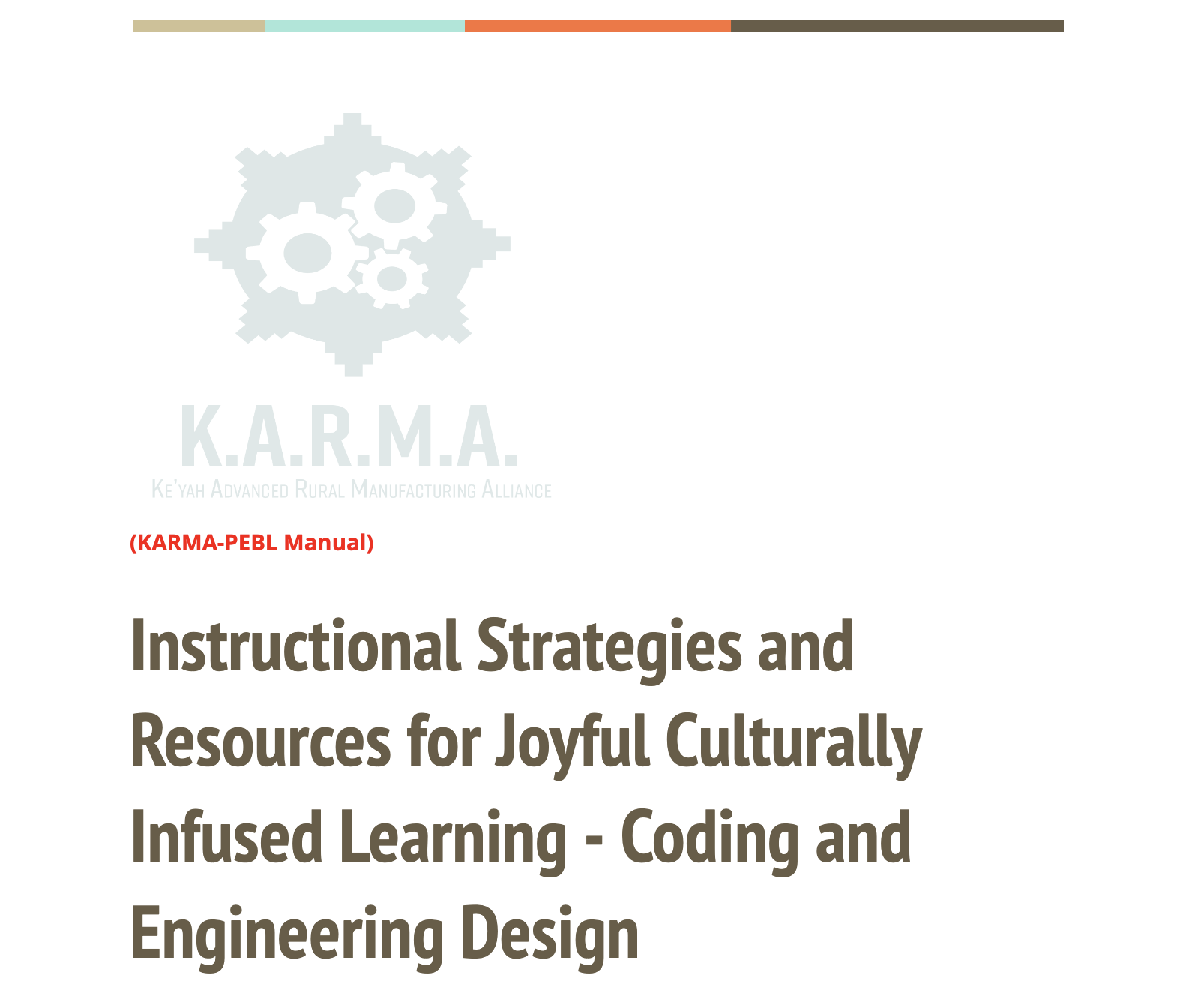
Instructional Strategies and Resources for Joyful Culturally Infused Learning – Coding and Engineering Design
KARMA created this manual as a collection of teaching and learning ideas, experiences, and materials that will provide a framework to integrate indigenous culture into engineering and coding.
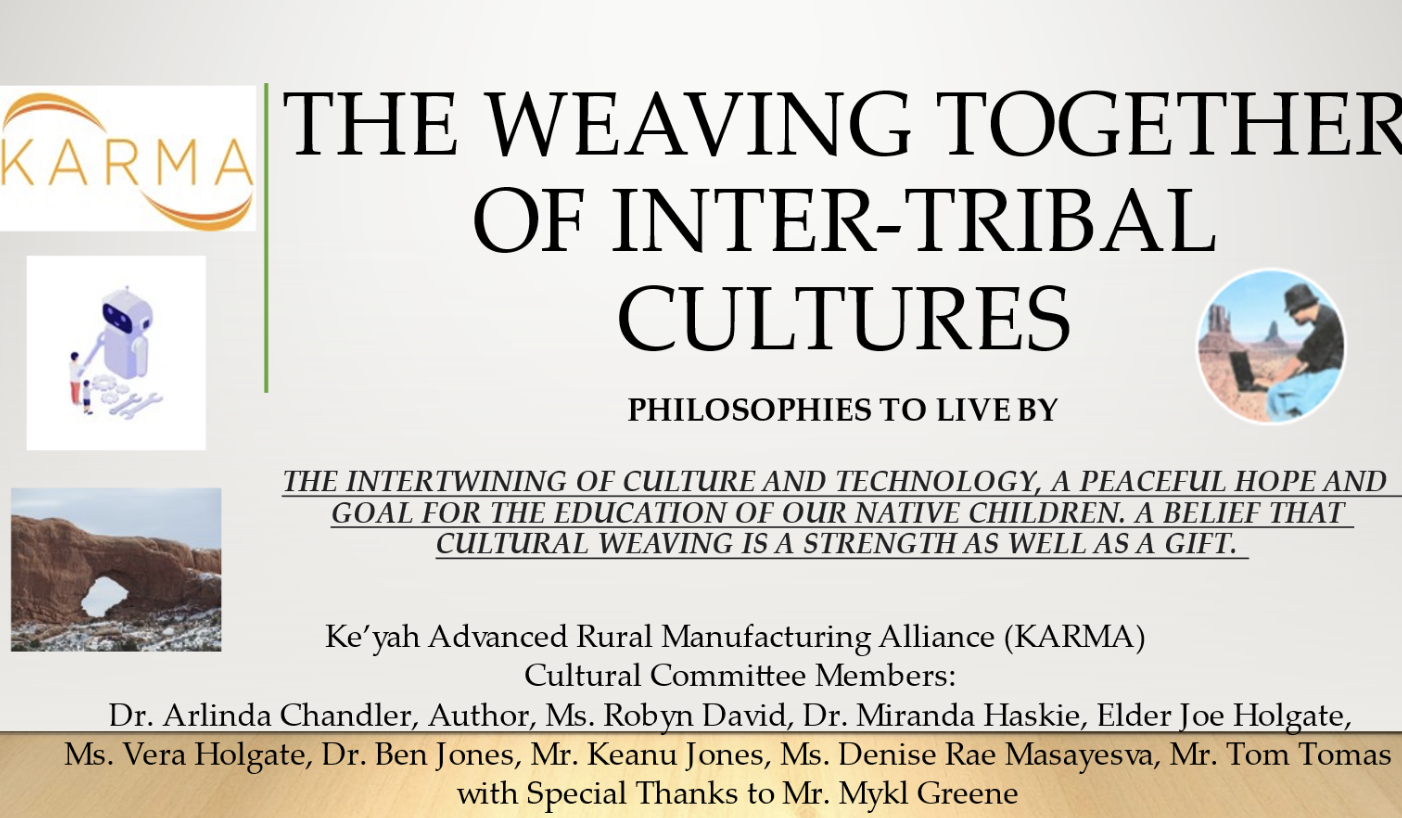
The Weaving Together of Inter-Tribal Cultures: Philosophies to Live By
KARMA created this document examining the intertwining of culture and technology, a peaceful hope and goal for the education of our Native children. A belief that cultural weaving is a strength as well as a gift.
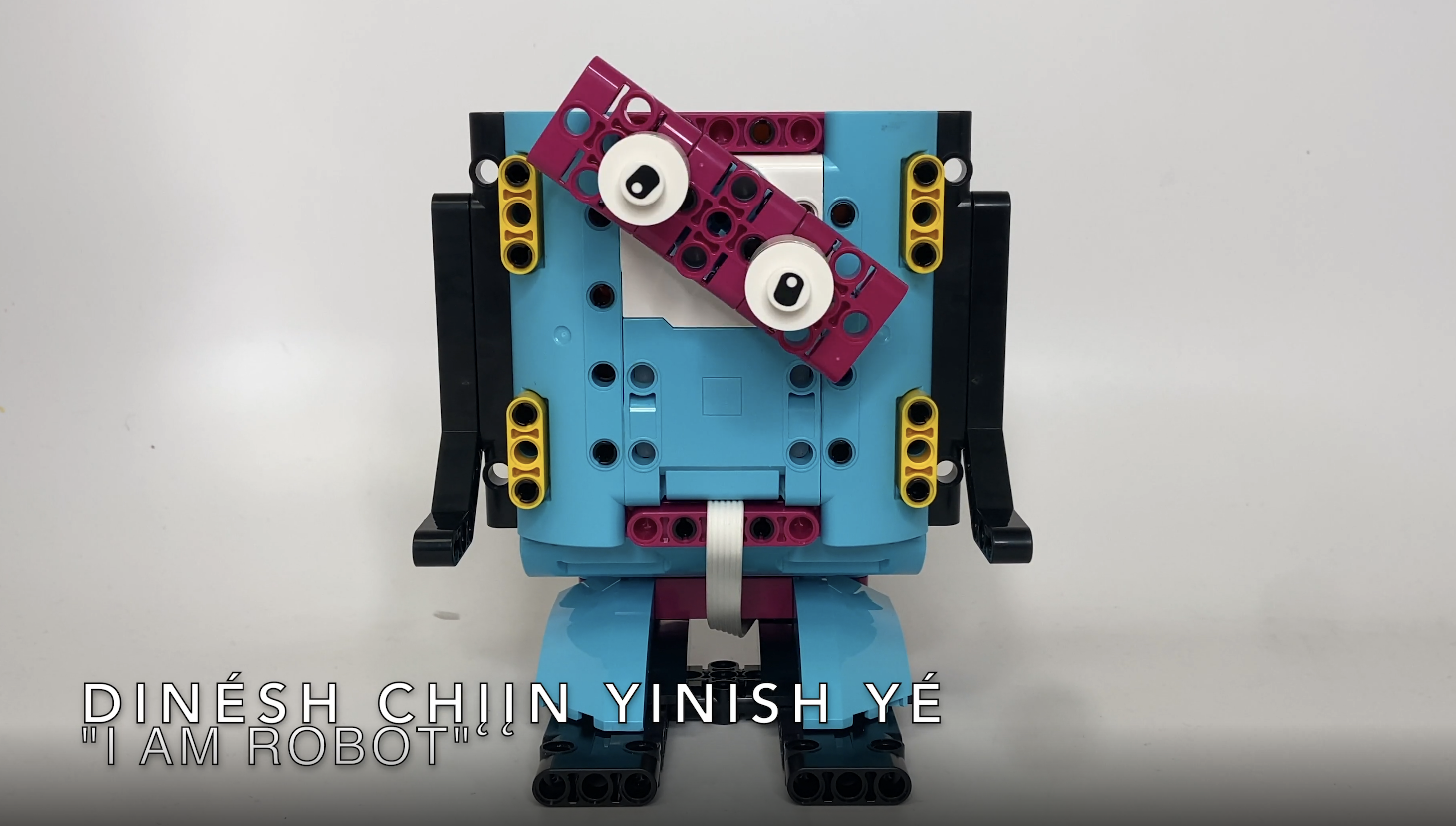
KARMA and Tufts CEEO co-designed these demo robots to demonstrate how Navajo culture can be infused into engineering and robotics.
MANUAL
- KARMA produced a PEBL professional development manual, “Instructional Strategies and Resources for Joyful Culturally Infused Learning – Coding and Engineering Design.” Developed for teachers, the manual includes lesson plans, resources, and strategies for implementing playful learning and integrating indigenous culture. The manual evolved into a webpage on the KARMA website. This manual was authored by the PEBL fellows, who created lessons from their perspective backgrounds. This webpage was shared and utilized during the KARMA summit, Acknowledging Culture in 21st Century Learning.
- KARMA produced a cultural manual, “The Weaving Together of Inter-Tribal Cultures: Philosophies to Live By.” This document examines the intertwining of culture and technology and how it relates to education.
CULTURAL INTEGRATION
- Created a “MakerPlace” concept, meaning a Makerspace informed by place-based learning.
- Established a cultural committee to exchange dialogue about topics surrounding artificial intelligence, playful learning, coding, and language revitalization.
- Co-designed SPIKE Prime demo robots and lessons with Tufts CEEO. Demos included language revitalization, local community terrain mapping, and Navajo rug design code.
CONFERENCES
- Hosted KARMA summit, “Acknowledging Culture in 21st Century Learning,” which introduced the “PEBL Manual.”
- Hosted a second Teacher Summit, which focused on hands-on learning.
- Hosted a retreat at Navajo Technical University for PEBL fellows to work on the KARMA manual and plan for the teacher summit.
ORGANIZATIONAL DEVELOPMENT
- Developed PEBL project team. Hired two staff, four fellows, and a parental advisor. Established a Cultural Team composed of a Navajo elder, a Navajo college professor, a Native professor emeritus, a parent, a K-12 teacher/Hopi teacher, and staff. Recruited volunteer consultants.
- Conducted weekly project team meetings for professional development and project progress assessment and bi-weekly meetings of the cultural committee to develop a cultural manual.
- Identified three areas of concentration with specific target activities: (1) Professional Development Manual, (2) Cultural Integration, (3) Robotics/Coding.
SITE VISITS AND COLLABORATION
- Hosted Play@Heart from Denmark for school visits and discussed playful learning, and further collaborations, including attending next year’s conference.
- Hosted WMSI and Tufts professor Trevion Henderson for site visits. KARMA and WMSI meet frequently to discuss KARMA’s organizational development. KARMA continues to collaborate with Trevion’s engineering design class.
- KARMA coordinated a site visit with LEGO Foundation, Ole Kjær Thomasen, Garrett Jaeger, and Chris and Cathy Rogers. This site visit was to LSCS, Hopi Second Mesa Day School, and the water catchment site on the Hopi Nation.


Jamie Adams
St. Michael Indian School
Navajo Nation, Arizona
My name is Jamie Adams, I am the school nurse and the Science and Math department head at St. Michael Indian School. I have been working at St. Michael Indian School for 8 years in some capacity and actually attended high school here as well for 2 years. I have my BS in Biology; an Associates in Nursing and I am working on my MSN to become a Family Nurse Practioner. I love teaching the higher sciences in the high school. When I am not teaching science, I enjoy working with the school’s choir preparing for mass and events. Working with our youth is a privilege and such a joy!
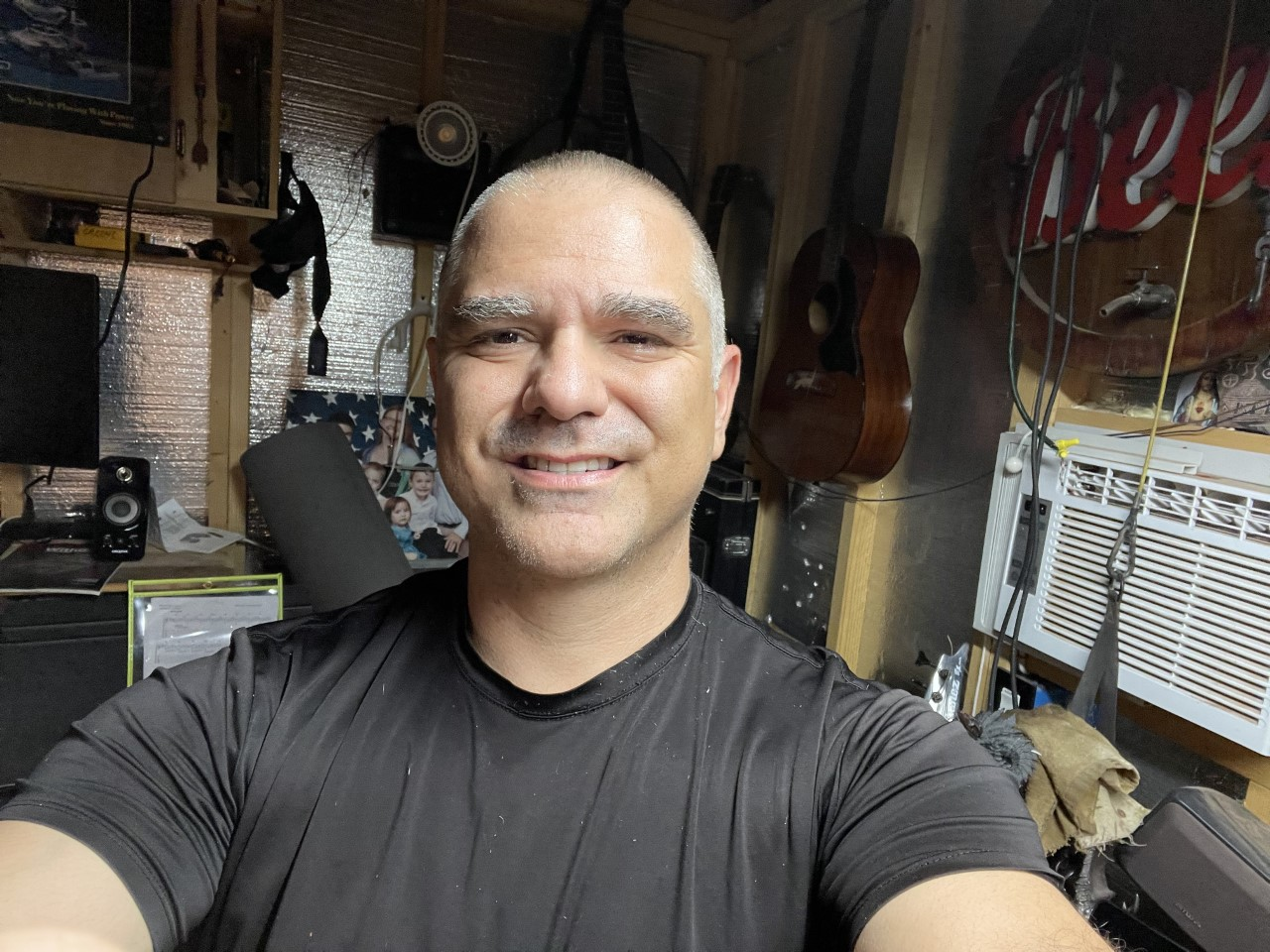
Mykl Greene
St. Michael Indian School,
Navajo Nation, Arizona
I was born & raised on the Navajo Nation, studied Electrical Engineering at Seattle University, Computer Programing & Psychology at NAU, after 20+ years I have returned to the same school that I attended K-12, Saint Michaels Indian School. As a father of 8, I believe God wanted me home. I turned down the job twice & I am glad SMIS kept asking. I never planned on being a teacher but now I can’t imagine anything else as fulfilling.
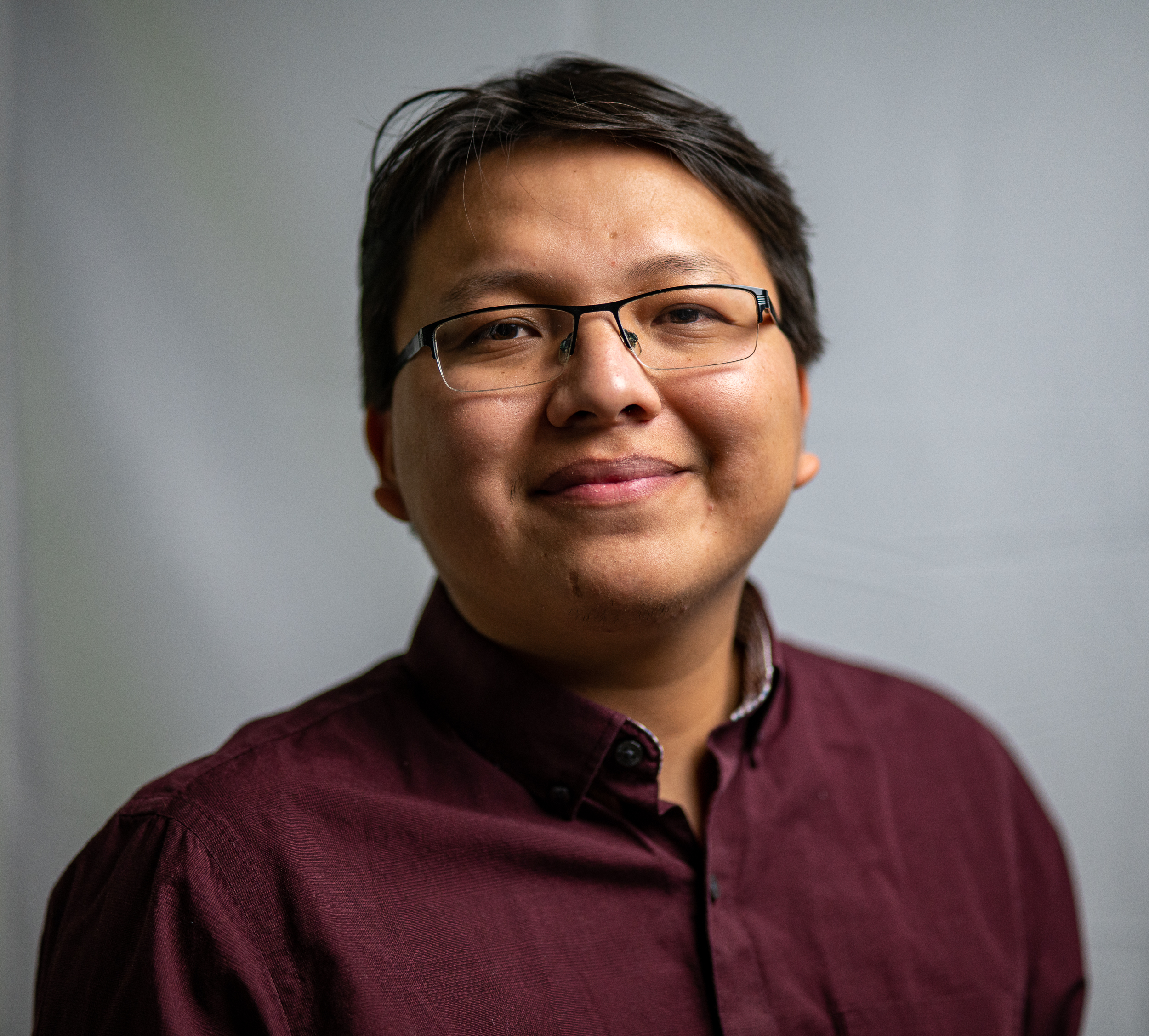
Keanu Jones
Project Manager/Videographer
KARMA
Keanu Jones (Navajo) is Mexican People Clan born for Big Water Clan and is originally from Grand Falls, Arizona. He is the Project Manager at KARMA but is also a Navajo/Dine’ filmmaker currently based in Albuquerque, New Mexico. He was selected as one of five Indigenous filmmakers to participate in the 2020 Sundance Institute Native Filmmakers Lab by The Sundance Institute.

Denise Masayesva
Second Mesa Day School
Hopi Reservation, Arizona
My name is Denise Masayesva, The majority of my work history has been with elementary schools, first as a math teacher for 20 years and currently as an assistant principal at Second Mesa Day School. I am from the village of Hotevilla, I am a member of the Tuwangyam (Sand Clan) and Kiiya’ani (Towering House clan), I am a parent of three men, a so’o (grandmother) to six grandsons, a daughter and a sister to many. As a member of the Hopi and Dine’ nations I am grateful to be immersed, since a child, in ancient communities who still practice many of the very old cultural practices. I hope to take hold of these practices and teachings and intertwine them with “new” technology, such as coding, so that our children who live in very rural communities can continue to practice our ancient culture and also have the tools to compete in the outside world.
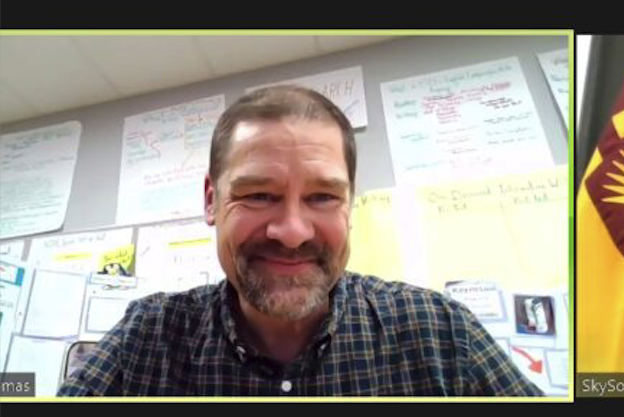
Thomas Tomas
Little Singer Community School
Navajo Nation, Arizona


